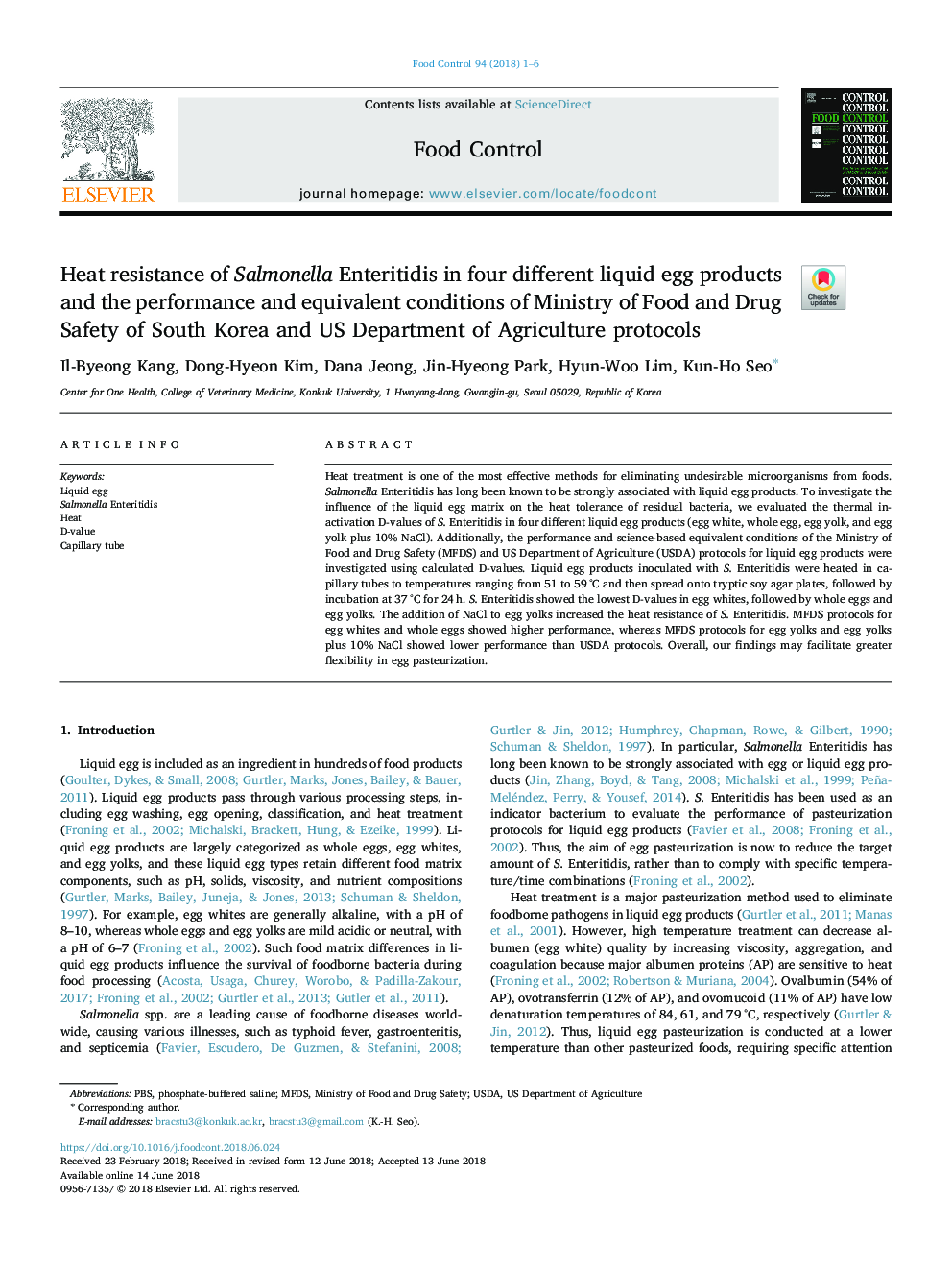| Article ID | Journal | Published Year | Pages | File Type |
|---|---|---|---|---|
| 8887672 | Food Control | 2018 | 6 Pages |
Abstract
Heat treatment is one of the most effective methods for eliminating undesirable microorganisms from foods. Salmonella Enteritidis has long been known to be strongly associated with liquid egg products. To investigate the influence of the liquid egg matrix on the heat tolerance of residual bacteria, we evaluated the thermal inactivation D-values of S. Enteritidis in four different liquid egg products (egg white, whole egg, egg yolk, and egg yolk plus 10% NaCl). Additionally, the performance and science-based equivalent conditions of the Ministry of Food and Drug Safety (MFDS) and US Department of Agriculture (USDA) protocols for liquid egg products were investigated using calculated D-values. Liquid egg products inoculated with S. Enteritidis were heated in capillary tubes to temperatures ranging from 51 to 59â¯Â°C and then spread onto tryptic soy agar plates, followed by incubation at 37â¯Â°C for 24â¯h. S. Enteritidis showed the lowest D-values in egg whites, followed by whole eggs and egg yolks. The addition of NaCl to egg yolks increased the heat resistance of S. Enteritidis. MFDS protocols for egg whites and whole eggs showed higher performance, whereas MFDS protocols for egg yolks and egg yolks plus 10% NaCl showed lower performance than USDA protocols. Overall, our findings may facilitate greater flexibility in egg pasteurization.
Keywords
Related Topics
Life Sciences
Agricultural and Biological Sciences
Food Science
Authors
Il-Byeong Kang, Dong-Hyeon Kim, Dana Jeong, Jin-Hyeong Park, Hyun-Woo Lim, Kun-Ho Seo,
